Trouble sleeping and waking too early? 3 common sleep problems that could be hidden signs of stress
Experts share the most common signs of stress in your sleep
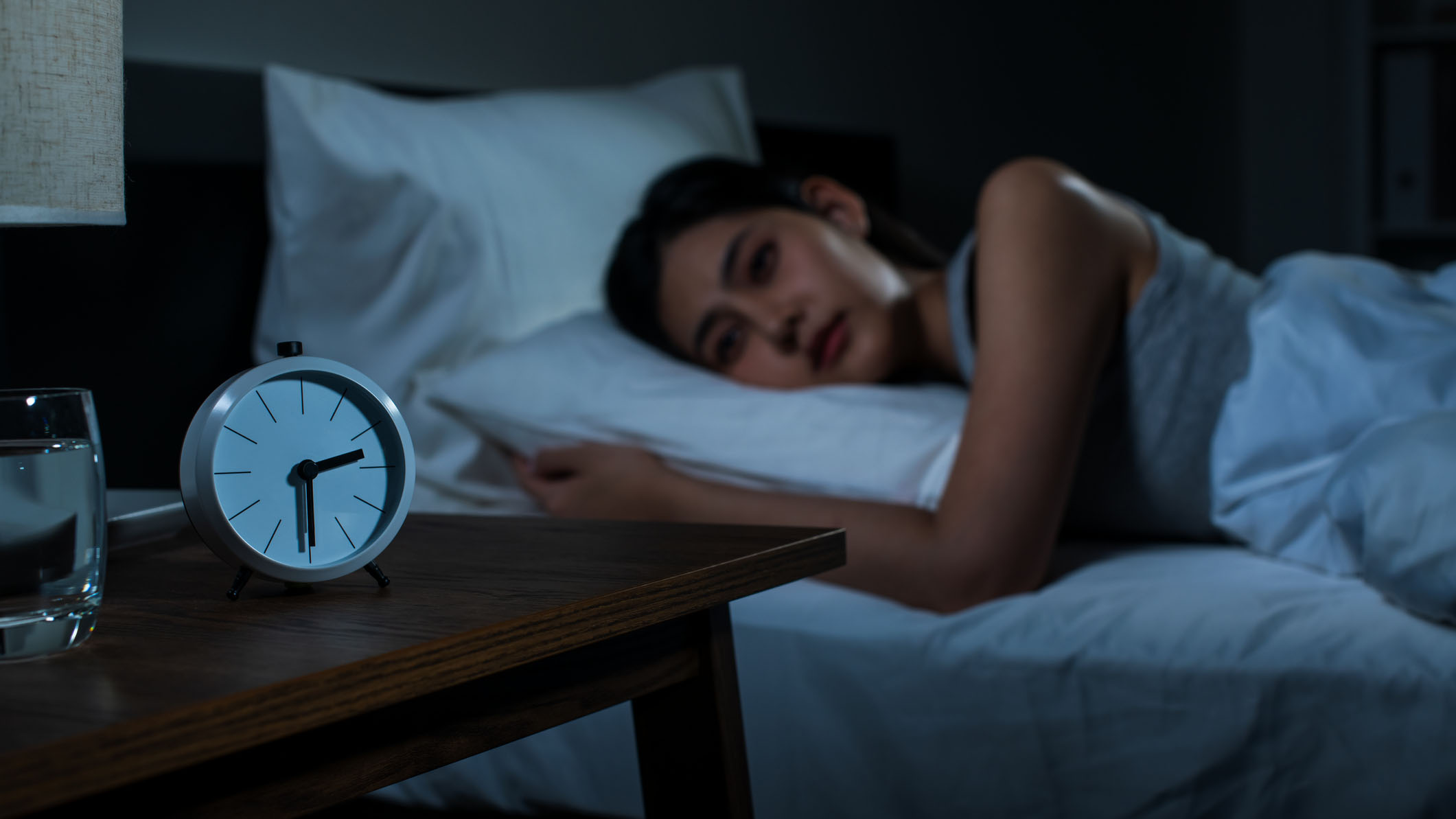
Here at Tom’s Guide our expert editors are committed to bringing you the best news, reviews and guides to help you stay informed and ahead of the curve!
You are now subscribed
Your newsletter sign-up was successful
Want to add more newsletters?
Join the club
Get full access to premium articles, exclusive features and a growing list of member rewards.
77% of people experience stress that has impacted their physical health, and 73% have felt the impact of stress on their mental health. That’s a huge percentage of people, and it’s no surprise with our increasingly busy lives.
And when this starts impacting our sleep, it’s bad news for both our mental and physical health. From waking up too early to struggling to fall asleep at all, stress wreaks havoc with our ability to get quality rest. And sometimes, we don’t even know when we’re experiencing it.
I’ve asked Dr. Leah Kaylor, a psychologist specializing in sleep, and Shebna N. Osanmoh, a psychiatric nurse, to share the most common sleep habits that are sign of stress. We’re also sharing our top tips to destress so you can get better sleep for your mental and physical wellbeing.
Does stress impact our sleep
Stress impacts just about every aspect of our lives, so it’s no surprise that it disrupts our ability to sleep.
“Stress triggers a cascade of physiological and psychological responses; activation of the hypothalamic-pituitary-adrenal (HPA) axis, elevated cortisol, racing thoughts that make it harder to wind down,” Osanmoh explains.
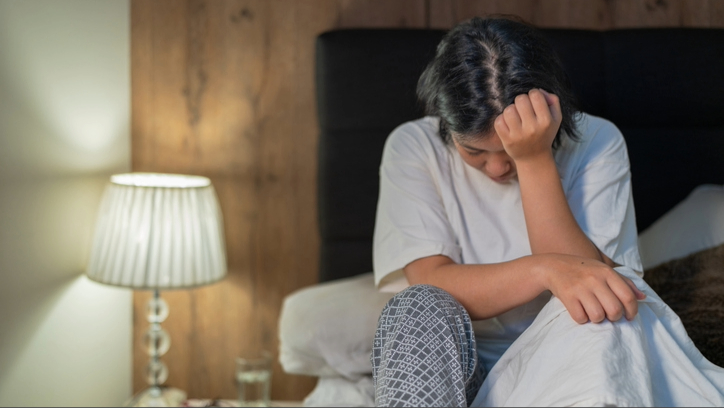
If you’ve ever experienced a loop of anxious thoughts when you’re lying awake in bed, it’s likely you’ve been experiencing stress.
“Stress activates the sympathetic nervous system — our body’s “fight-or-flight” mode — which floods the body with cortisol and adrenaline,” says Dr. Kaylor.
Get instant access to breaking news, the hottest reviews, great deals and helpful tips.
Cortisol is the hormone that gets released during the morning to help wake us up. As you can imagine, elevated levels of this, combined with adrenaline, confuses the body and prevents it from switching off and drifting off to sleep.
3 sleep habits that are a sign of stress
So, how does this present itself? There are three common sleep habits that indicate your stress levels might be too high. Here they are.
1. Taking too long to fall asleep
The time it takes to fall asleep is called sleep latency. The first sign of heightened stress levels is lying awake at night, unable to fall asleep.
“Stress significantly increases sleep latency — the time it takes to fall asleep,” says Dr. Kaylor.
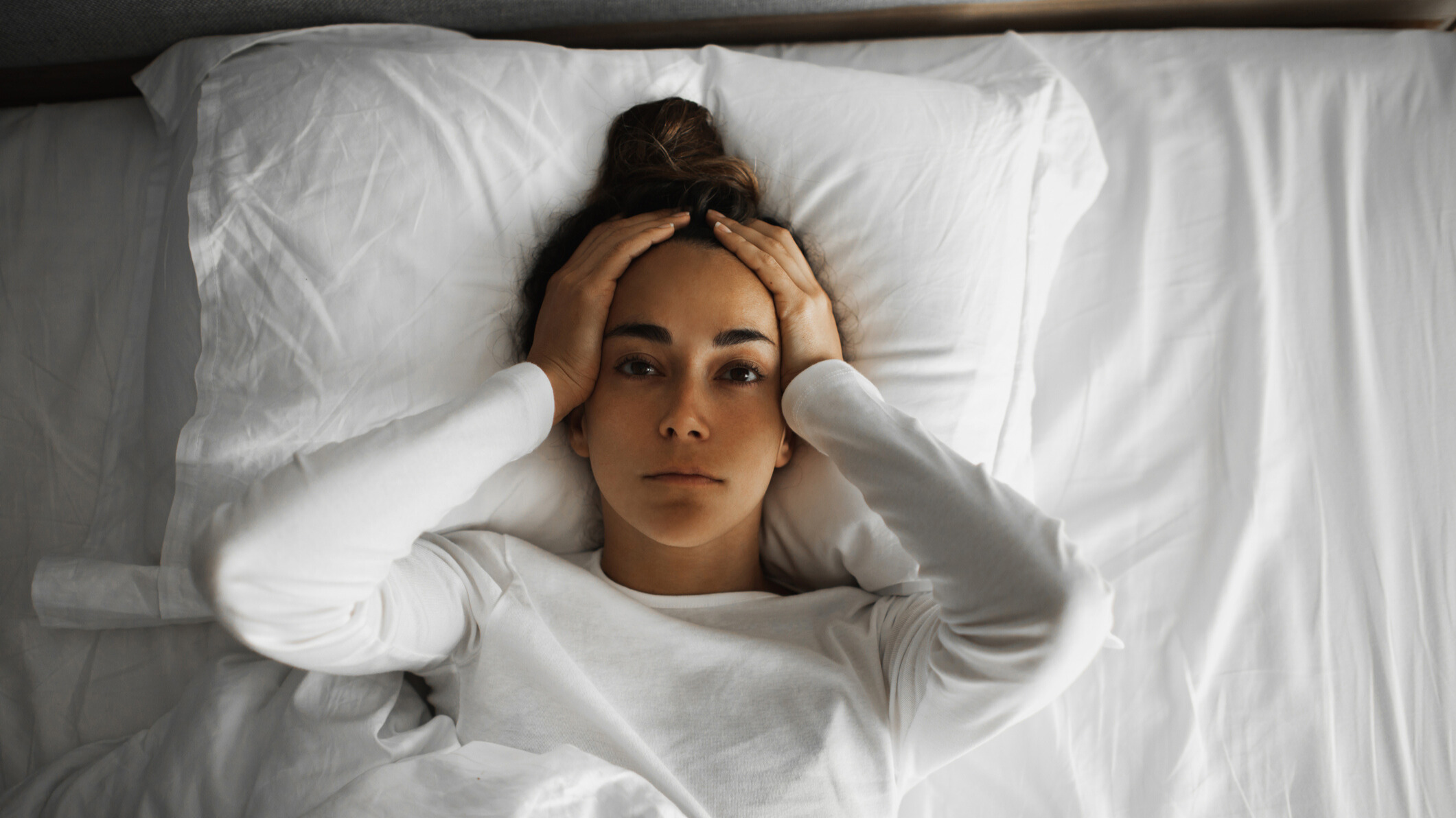
“When your body is in a state of hyperarousal, it’s harder to downshift into the calm, low-stimulation state required for sleep onset,” she explains.
Our circadian rhythm (otherwise known as our body clock) which helps us fall asleep and stay awake at the right times is controlled by sleep hormones. However, as we mentioned, stress affects these hormones.
“The surge of “wake-up” hormones (cortisol, adrenaline) and mental hyperarousal prolong the time from lights-out to sleep onset,” explains Osanmoh.
2. Waking up in the night
Once you eventually fall asleep, you might not be able to experience deep, restorative sleep. Instead, staying in the light stages of sleep where you’re more likely to wake up frequently throughout the night.
“Stress causes fragmented sleep by keeping the brain partially alert,” explains Dr. Kaylor.
“You may shift out of deeper stages of sleep more easily or awaken due to minor noises, temperature changes, or racing thoughts," she adds.
If you think this might be the case for you, ensure you keep a pair of earplugs and a sleep mask handy.
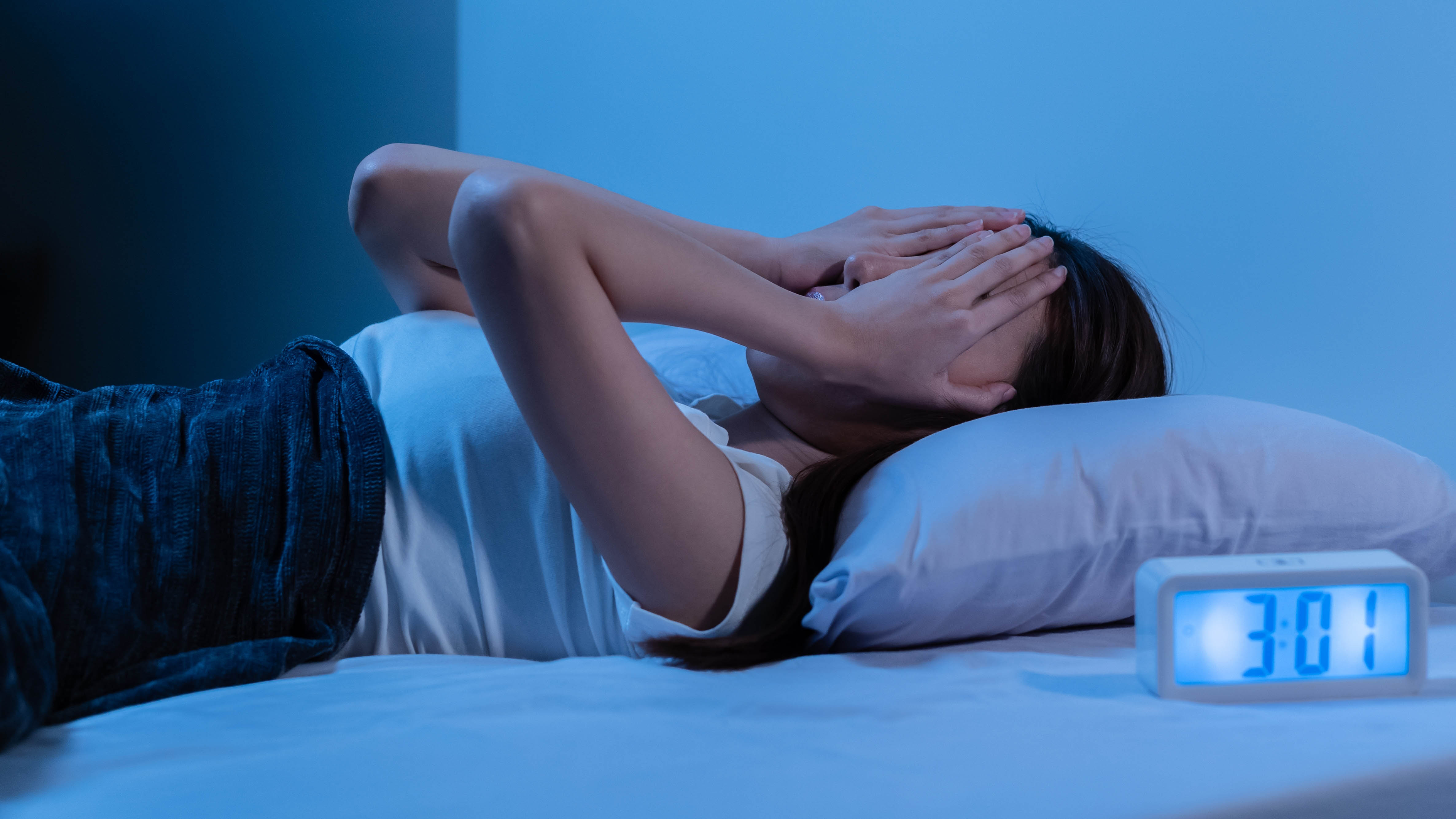
Osanmoh explains how stress increases these ‘micro-awakenings’ and “shifts sleep architecture away from deep (slow-wave) and REM phases.”
Deep sleep is responsible for physical healing and rest, while REM is how we process emotions and memories. Without adequate time in these sleep stages, you’ll likely wake up feeling exhausted, even if you feel like you had a full eight hours of sleep.
3. Waking up too early
The last thing you need after an interrupted sleep is an early start. But, if you’re feeling stressed, that’s exactly what you can expect.
“Early morning awakenings are a classic sign of stress-induced insomnia,” says Dr. Kaylor. “When cortisol rises too early — due to unresolved stress or anxiety — it can jolt you awake prematurely,” she explains.
“People often report waking at 3–5 am with a racing mind, unable to return to sleep.”
The reason for this? “Elevated early-morning cortisol (the natural “dawn surge”) can be exaggerated by chronic stress — pulling you out of sleep around 4–5 am,” explains Osanmoh.
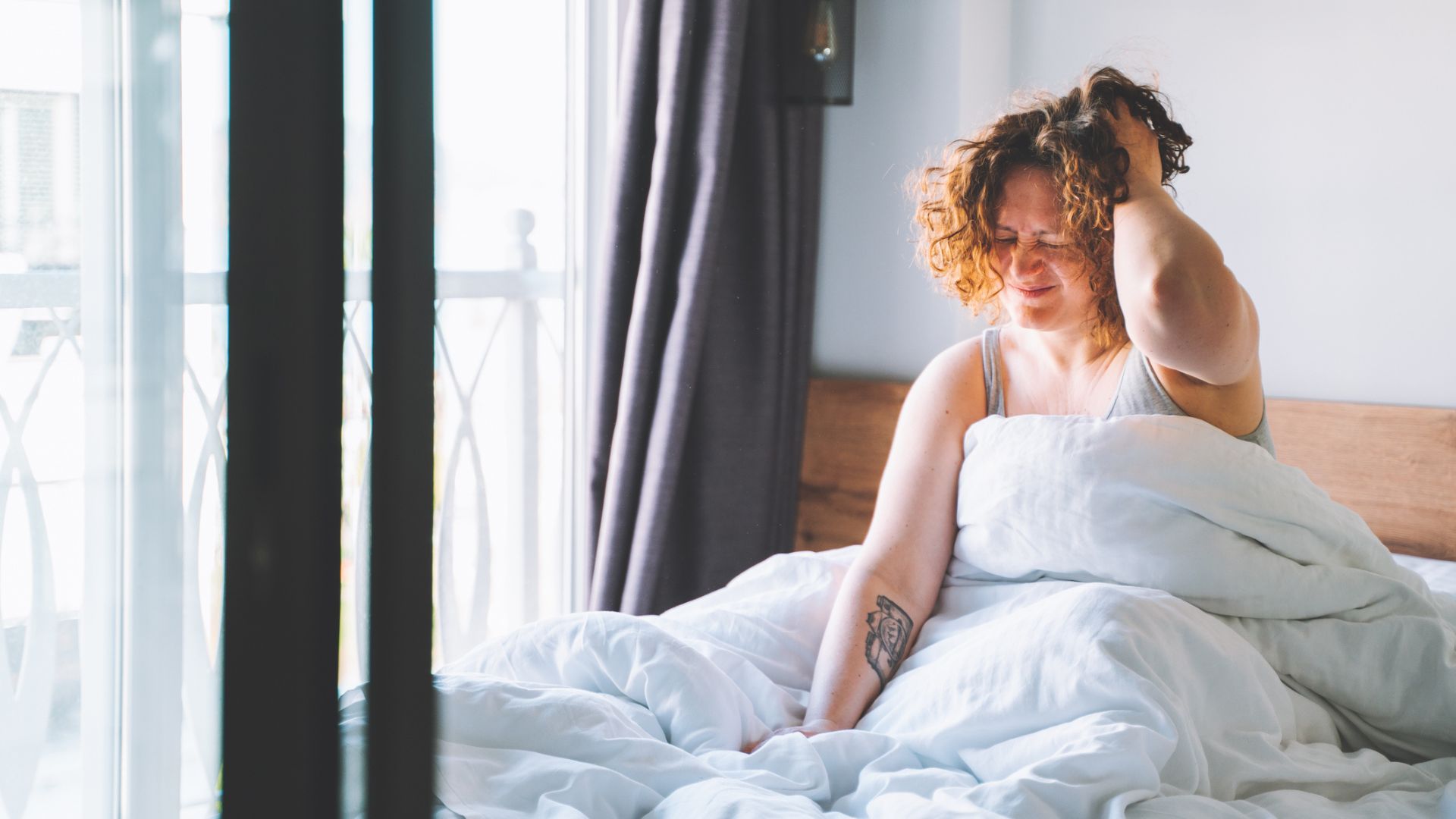
How to destress for better sleep
Without addressing the problem, you risk experiencing sleep deprivation. Here are some top tips to destress for better sleep.
Try ‘worry time’
Osanmoh’s top tip is “Scheduled ‘worry time.’” He advises you “set aside 15–20 minutes each evening (e.g., at 7 pm) to jot down concerns and action steps.”
Similarly, Dr. Kaylor says to “write down worries, to-do lists, or racing thoughts.”
“This simple act of “cognitive offloading” helps your brain stop looping before bed,” she explains.
Breathing exercises
Our breathing is closely linked to our nervous system, which means certain slow breathing exercises can help regulate anxiety and stress.
“Techniques like box breathing or 4-7-8 breathing activate your parasympathetic nervous system, signaling your body to calm down,” explains Dr. Kaylor.
“Practice 5–10 minutes of diaphragmatic breathing or body-scan meditation at least 30 minutes before sleep,” Osanmoh suggests.
Sleep meditations can be a great way to incorporate breathing methods with mindfulness techniques to slow a racing mind.
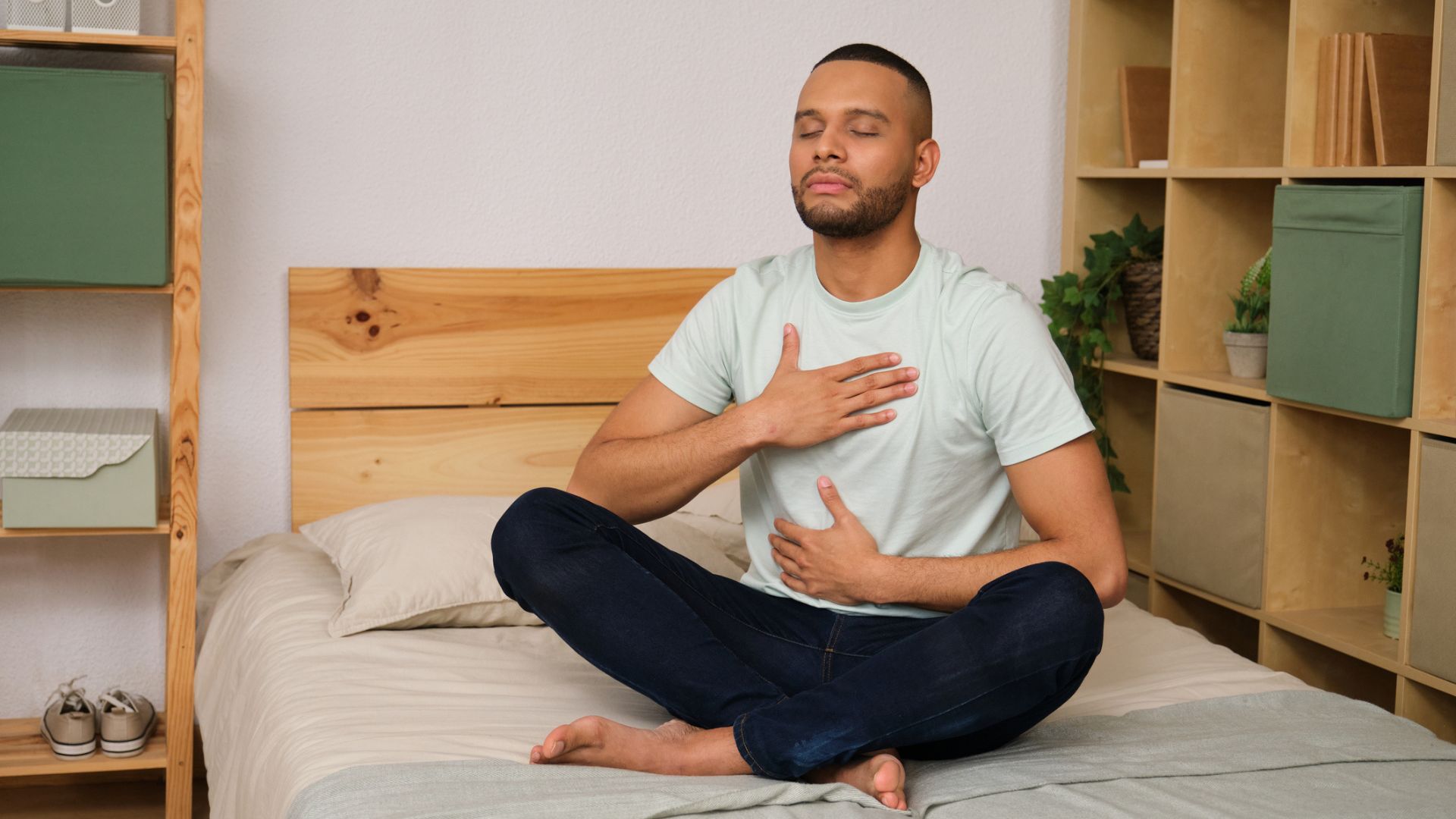
Keep a consistent sleep schedule
“Aim for fixed wake and bedtime — even on weekends — to stabilize your circadian rhythm,” says Osanmoh.
A consistent sleep schedule will help regulate your hormones and sleep cycle, making it easier to fall asleep and stay asleep.
Dr. Kaylor’s top tip to regulate your body clock is sunlight. “10–15 minutes of light exposure early in the day helps reset your circadian rhythm and lowers stress hormones naturally,” she explains.

Lauren is an experienced writer and editor in the health and lifestyle industry and has led many campaigns and projects that deliver news, advice, and research on all things sleep. As the Sleep Features Editor for Tom’s Guide, Lauren writes, commissions and edits sleep and mattress content, from in-depth how-tos in sleep and mattress health to interviews with doctors and neuroscientists on the latest news in sleep. Lauren regularly tests new sleep tech and accessories to evaluate their effectiveness for getting good quality sleep and easing specific sleep struggles like nighttime anxiety. Alongside this, Lauren reports on the best mattress brands out there, like Helix, Saatva, and DreamCloud, helping readers find the right mattress for them and the best deals on them.
You must confirm your public display name before commenting
Please logout and then login again, you will then be prompted to enter your display name.
 Club Benefits
Club Benefits










